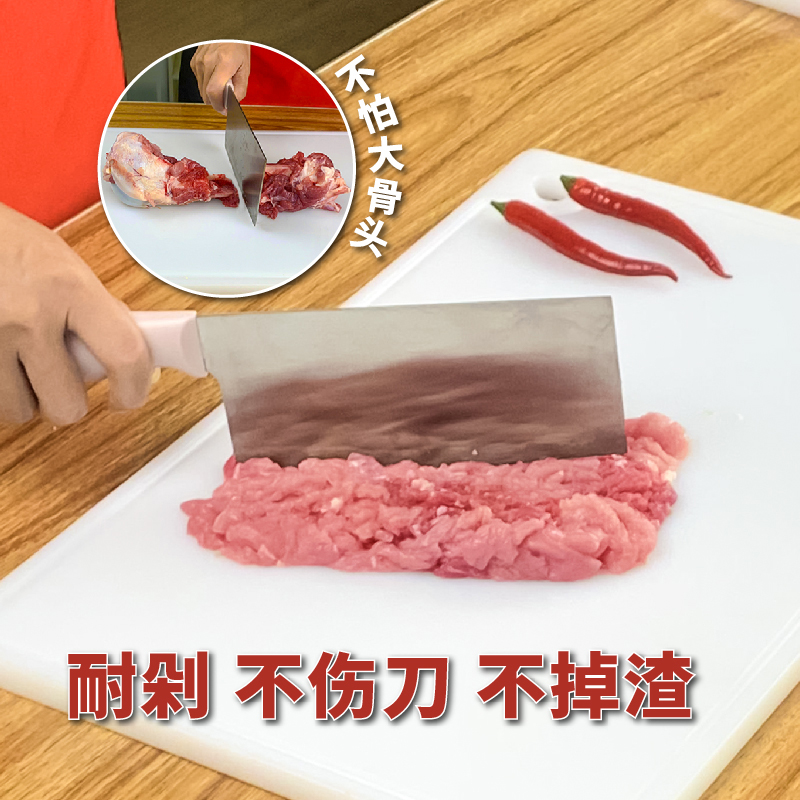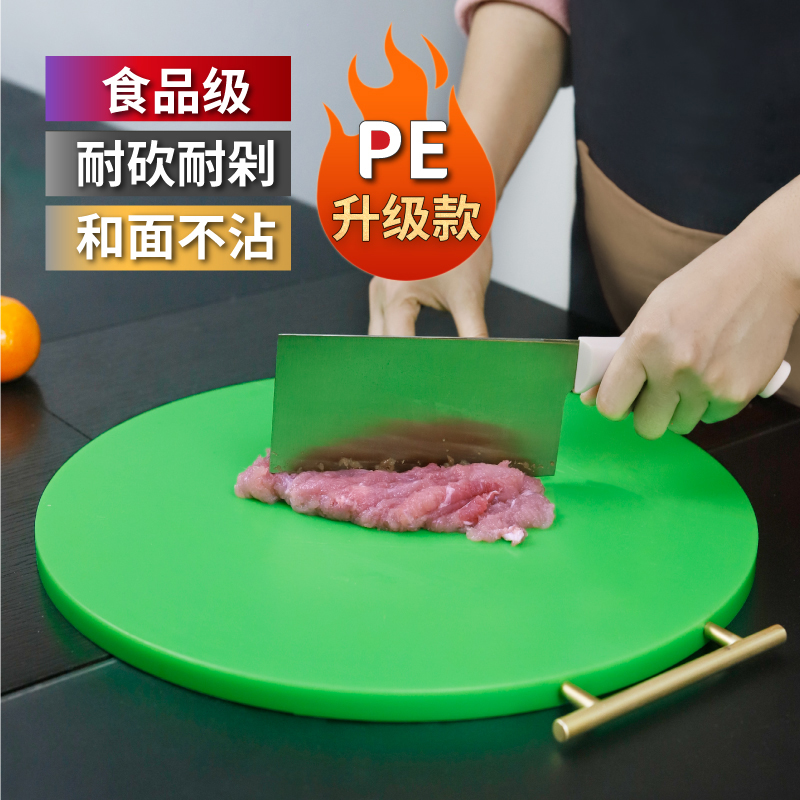Definition
The ultra – high molecular weight polyethylene chopping board is an operating platform made of ultra – high molecular weight polyethylene as raw material, mainly used for food cutting and preparation in fields such as food processing and food and beverage services. It occupies an important position in the kitchenware market due to its unique properties.
Material
Ultra – high molecular weight polyethylene (UHMW – PE) is a thermoplastic engineering plastic with a linear structure and excellent comprehensive properties. Its molecular chain length is 10 – 20 times that of high – density polyethylene. This unique molecular structure endows it with excellent properties. Compared with ordinary polyethylene, ultra – high molecular weight polyethylene has a higher molecular weight, thus possessing better physical and chemical properties.


Properties
- Wear Resistance: The wear resistance of the ultra – high molecular weight polyethylene chopping board is extremely outstanding, several times that of common chopping board materials such as wooden and plastic ones. Under frequent cutting and chopping operations, it can maintain a smooth surface for a long time, and is not prone to scratches and wear, greatly extending its service life. This benefits from the strong intermolecular forces brought by its high molecular weight, enabling the material surface to withstand significant friction without being easily damaged.
- Self – lubrication: This chopping board has good self – lubrication. Food ingredients slide smoothly on its surface, making cutting easy and labor – saving. This not only improves the operation experience but also reduces the friction between the knife and the chopping board, helping to protect the knife and extend its service life. This self – lubricating property stems from the characteristics of its molecular structure, resulting in a low friction coefficient on the material surface.
- Impact Resistance: The ultra – high molecular weight polyethylene chopping board has excellent impact resistance. Even when subjected to accidental strong impacts, it is not easy to crack or break. This provides reliable protection for its use in the complex and changeable kitchen environment, reducing the risk of chopping board damage due to accidental impacts. Its excellent impact resistance is attributed to the high toughness imparted by the high molecular weight, which can effectively absorb and disperse impact forces.
- Corrosion Resistance: It has strong corrosion resistance to various food juices, acidic and alkaline substances, as well as cleaning agents. This means that during long – term use, the chopping board is not easily corroded, moldy, or prone to generating odors, always maintaining a hygienic and safe state. This characteristic stems from the stability of the chemical structure of ultra – high molecular weight polyethylene, enabling it to resist the erosion of various chemical substances.
- Hygiene: The surface of the ultra – high molecular weight polyethylene chopping board is smooth, without gaps or pores, and is not prone to dirt accumulation. When cleaning, simply rinse with water or wipe gently with a cleaning agent to easily remove stains, effectively inhibiting the growth of bacteria, providing a clean and hygienic operating platform for food processing, and meeting strict food hygiene standards.
Application Fields
- Household Kitchens: The ultra – high molecular weight polyethylene chopping board is an ideal choice for household kitchens. Its excellent properties can meet the daily food processing needs of families. Whether cutting meat, vegetables, or performing baking operations, it can provide a stable and reliable operating surface. At the same time, its hygienic and easy – to – clean characteristics relieve housewives from concerns about bacterial growth and odors, ensuring the dietary health of family members.
- Food and Beverage Industry: In restaurants, canteens, and other food and beverage places, the ultra – high molecular weight polyethylene chopping board also plays an important role. The food and beverage industry has a large volume of food processing, with extremely high requirements for the wear resistance, corrosion resistance, and hygiene of chopping boards. The ultra – high molecular weight polyethylene chopping board can withstand high – intensity use, is not easily damaged, and is easy to clean and maintain, effectively reducing the operating costs of food and beverage enterprises while ensuring the hygiene and safety of the food processing process.
- Food Processing Enterprises: For large – scale food processing enterprises, the ultra – high molecular weight polyethylene chopping board is indispensable. Its excellent comprehensive properties can meet the high – intensity and high – efficiency production requirements of the automated production lines in food processing enterprises, ensuring the continuity and stability of the production process. Moreover, it meets the strict hygiene standards of the food industry, helping enterprises to pass various food safety certifications.
Explanation:
- “operating platform”: Clearly indicates that the chopping board serves as a place for operation, which is a common way to describe such items in English.
- “thermoplastic engineering plastic”: These are standard terms in the plastics industry. “Thermoplastic” refers to plastics that can be melted and reshaped by heat, and “engineering plastic” implies plastics with high – performance characteristics for engineering applications.
- “wear resistance”, “self – lubrication”, “impact resistance”, “corrosion resistance”: These are all common terms used to describe material properties, with “resistance” indicating the ability to withstand a particular kind of stress or action.
- “service life”: A frequently used phrase to describe how long a product can be used effectively.
- “friction coefficient”: A scientific term to describe the degree of friction between two surfaces, which helps to explain the self – lubrication property more precisely.
- “hygiene”: Here it means the state of being clean and free from dirt, bacteria, etc., which is very relevant for a food – related product like a chopping board.
- “food and beverage industry”: A commonly used term to refer to the industry related to food production, processing, and dining services.